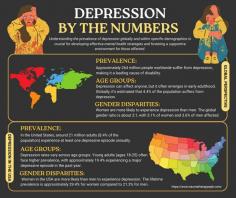
Depression is a mental health disorder characterized by feelings of sadness, low energy, and decreased interest in activities you used to enjoy. Depression is more than being sad. It’s an inability to do daily tasks, to get out of bed and brush your teeth, to feel excitement, all while feeling intense guilt for it.
Symptoms of depression include:
Depressed mood most of the day, every day for 2 weeks
Diminished interest in all activities
Weight loss or gain
Insomnia or hypersomnia
Physical hyperactivity or retardation
Loss of energy
Feelings of worthlessness or guilt
Decreased ability to concentrate or indecisiveness
Thoughts of death
There are different levels of severity of depression. Depression is a real medical condition, not a moral failing. However, there is treatment. Your therapist at the Trauma Therapy Center will guide and support you on your path to freedom from depression and satisfaction from life.
What Are the Types of Depression?
There are different types of depression, including:
- Major depressive disorder (MDD): MDD is what is known as clinical depression. It is characterized by persistent feelings of sadness, emptiness, and hopelessness. Symptoms typically last for at least two weeks.
- Dysthymia: Dysthymia is considered to be a milder form of MDD. Symptoms are still chronic and persistent but less severe.
- Seasonal affective disorder (SAD): SAD is a type of seasonal depression that occurs at a specific time of year, usually in the winter or fall. It is believed that this form of depression is associated with changes in light exposure.
- Postpartum depression (PPD): PPD happens to women after childbirth. PDD symptoms include sadness, feelings of emptiness, and exhaustion. PPD typically lasts from several weeks to months.
- Premenstrual dysphoric disorder (PMDD): PMDD is a type of premenstrual syndrome (PMS) characterized by intense mood swings and sadness, irritability, along with physical symptoms.
There are other forms of depression, however, these are the most common. If you think you may be experiencing any of types of depression talk to your counselor about treatment options.
Read more: https://www.traumatherapywpb.com/conditions/depression/

